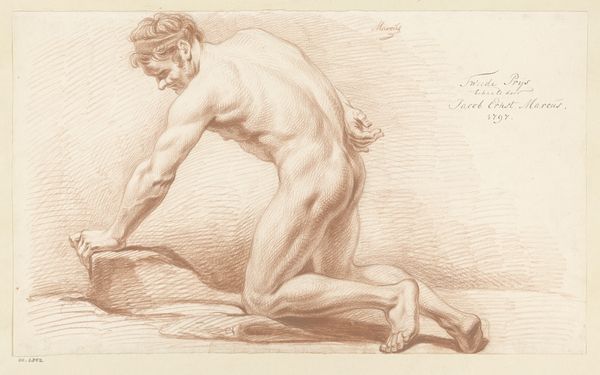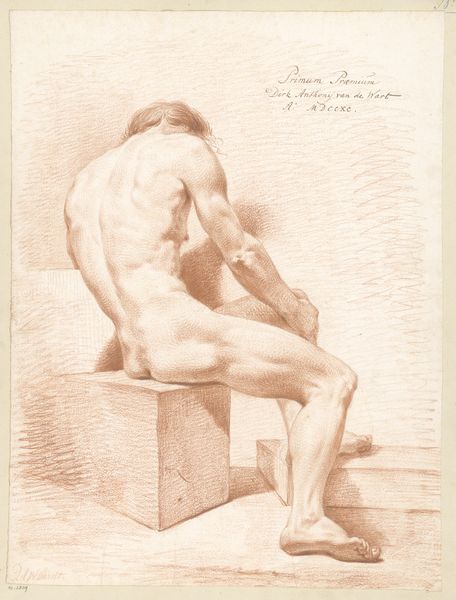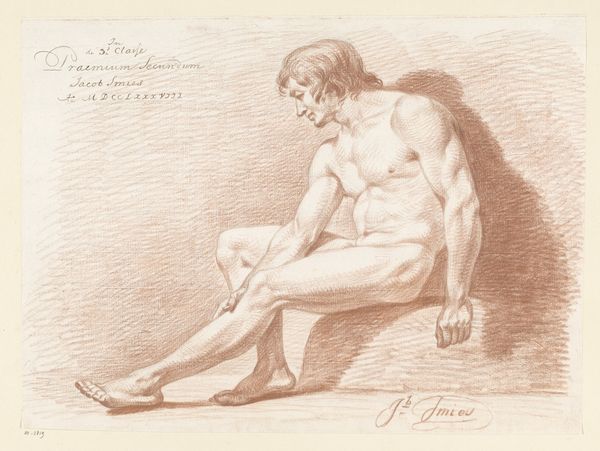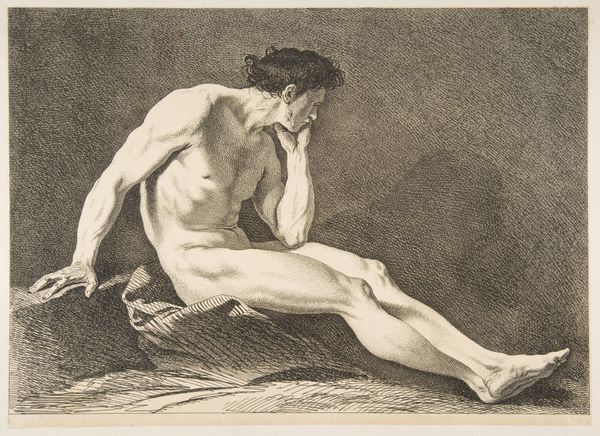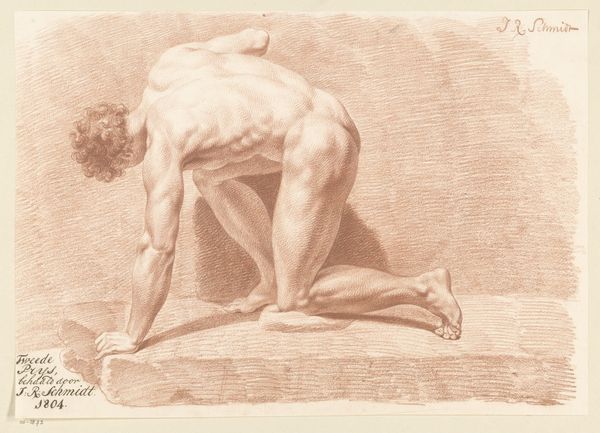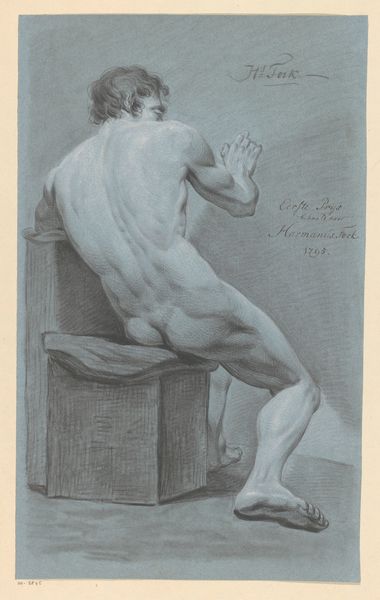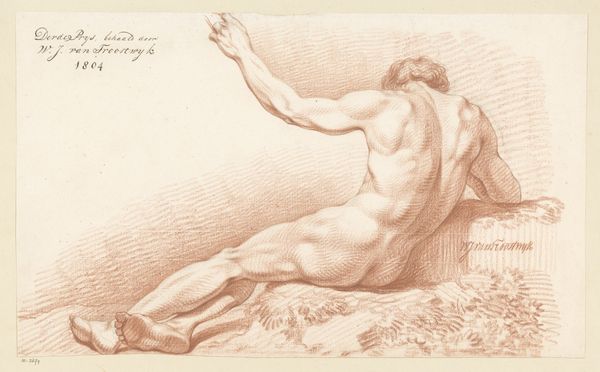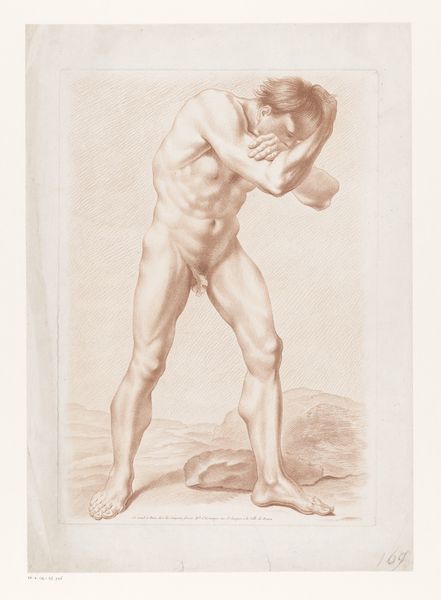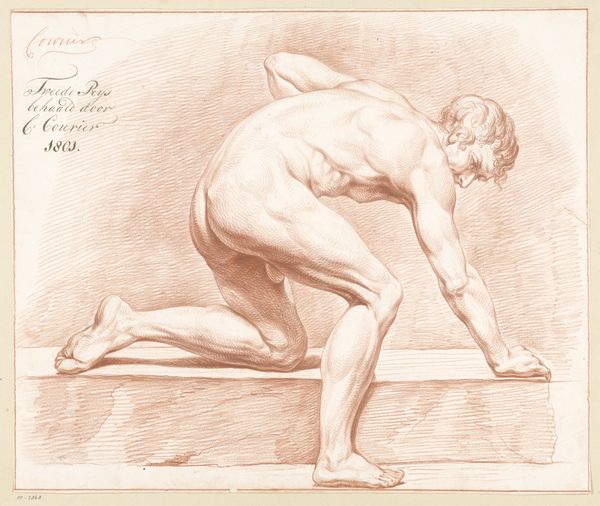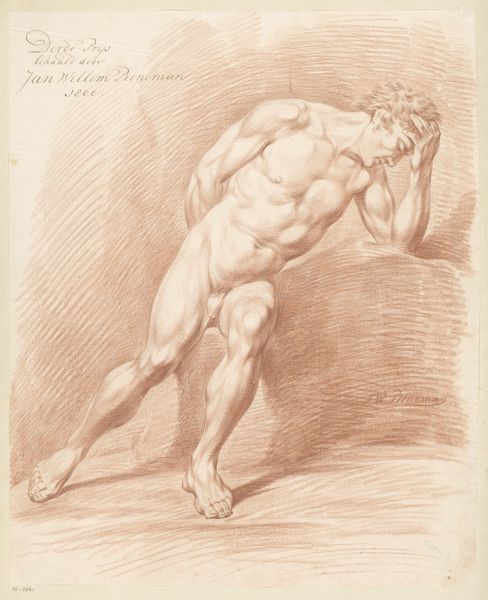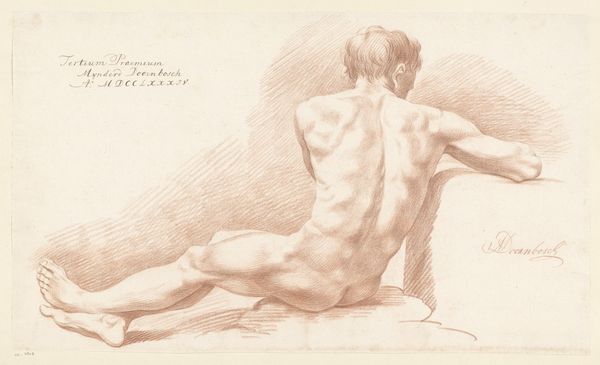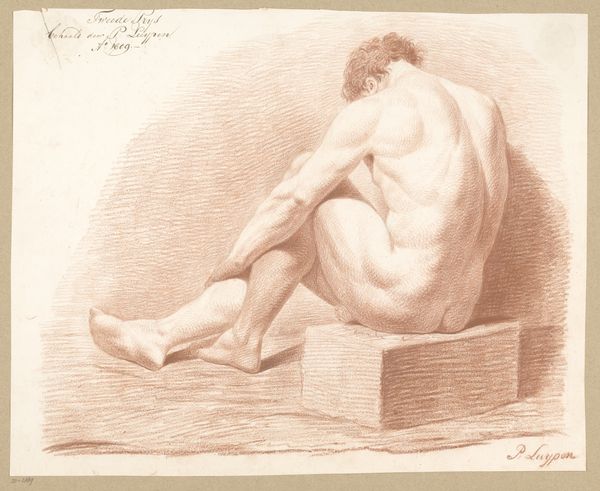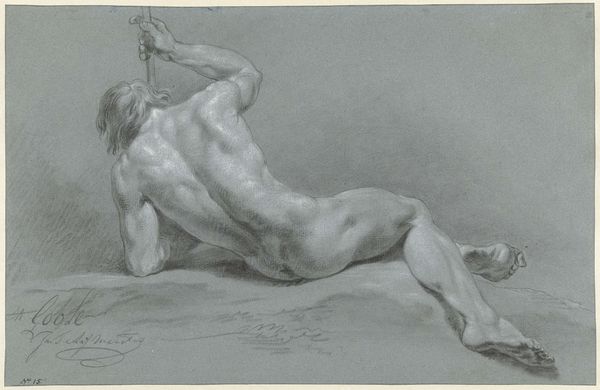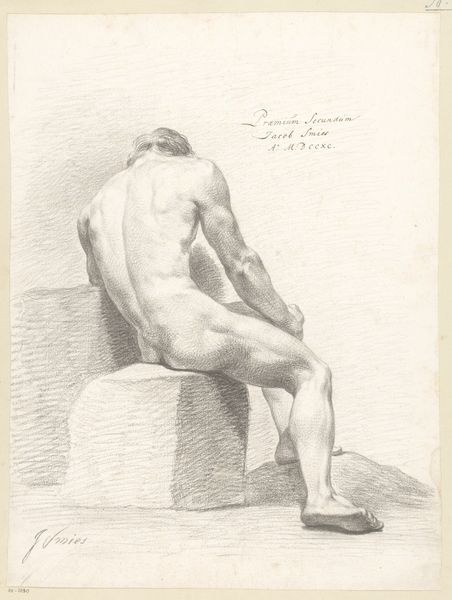
Zittend mannelijk naakt, van opzij gezien (2e prijs 1793) Possibly 1793
0:00
0:00
hermanusfock
Rijksmuseum
drawing, pencil
#
pencil drawn
#
drawing
#
toned paper
#
facial expression drawing
#
light pencil work
#
pencil sketch
#
old engraving style
#
classical-realism
#
figuration
#
portrait reference
#
pencil drawing
#
pencil
#
portrait drawing
#
pencil work
#
history-painting
#
academic-art
#
nude
Dimensions: height 413 mm, width 533 mm
Copyright: Rijks Museum: Open Domain
Hermanus Fock made this drawing of a seated male nude in 1793, and it won second prize. The artist used graphite to create the image, which looks like humble material, but here it models human form. It's easy to forget that graphite wasn't always used for everyday purposes, like pencils. In the late 18th century, it was still very much associated with fine art. We can see how Fock used it to create subtle gradations of light and shadow. Look closely and you'll notice that the artist has paid careful attention to the musculature of the figure, using the graphite to render the texture and volume of the body. Fock was clearly skilled at manipulating graphite to create a convincing illusion of three-dimensionality. This wasn't just a technical exercise, though. By focusing on the human form, Fock was engaging with a long tradition of artistic practice. It would have taken hours of careful work, building up the image gradually. This drawing isn't just a representation of a nude man, it's also a testament to the skill and labor of the artist.
Comments
No comments
Be the first to comment and join the conversation on the ultimate creative platform.
